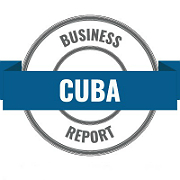It’s safe to say, that at the current time, there’s a massive problem in the existing relationship between Cuba and the big banks. The overlying reason for this is the American embargo/blockade and the genuine fear of the big banks of the enormous fines imposed by the U.S. Treasury Department. For Cuba, problems of obtaining credit, freezing of funds and the lack of the ability to deal in U.S. dollars makes trade difficult. As a result economic growth is severely hindered for the Island economy.
When the Cuban diplomatic mission in Washington first opened, it operated without a bank or banking services. This situation created difficulties for the Cuban missions to provide normal consular services.
For example, these banking restrictions forced both American citizens and Cuban mission staff to transfer huge sums of cash to pay for bills manually. This is most definitely not an ideal situation.
Stonegate Bank, a small bank in Florida, came to the rescue, signing the first deal to set up a correspondent account in Cuba with Banco Internacional de Comercio S.A. Stonegate Bank currently provides banking services for the Cuban embassy.
The Cuba-US Bilateral Commissions talks between the U.S. and Cuba continue but the problem of banking remains unsolved. A fourth session of Cuba-US Bilateral Commission talks led by Josefina Vidal General Director for the U.S. of the Cuban Foreign Ministry took place in Washington in late December. No solution to the problem of banking was arrived at.
After discussions wound up, Ms Vidal described the continuing issue and suggested that President Barack Obama had not done as much as he could have done with his executive powers.
“… We are still unable to make financial transfers, we are denied services of this kind and payments are withheld, while the U. S. continues to impose fines on banks and foreign financial entities that do business with our country. The blockade is an outdated policy that the world abhors and it must end. Thus far it has not been possible to normalize banking relations. All of this could be resolved if President Obama was brave enough to exploit his executive prerogatives. Thus far the U. S. has failed to issue a political statement or legal document explaining to world banks that operations with Cuba are legitimate, and that those banks or countries won’t be sanctioned. So for a half-century Cuba has had to exist under an America blockade that would have doomed much larger and stronger nations.”
As the United States and Cuba struggle to repair their strained diplomatic relations, the problem for Cuba and the big banks is still not resolved. In a attempt to fix the problem, albeit an insignificant effort to find a solution, the U.S. permitted travelers visiting the island to use credit and debit cards.
Changes in U.S. regulations so far been met, to date, with skepticism as bankers seek to understand what the minuscule changes mean for them. Banks such as BNP Paribas, Deutsche Bank, Barclays, JPMorgan, ANZ Banking Group and Commerz Bank Ag, among others, have already been fined by the U.S. Treasury for providing banking services to Cuba. Despite the policy shift on Cuba by the U.S., much effort is still required to finding an answer to the banking problem.
The problem between Cuba and the big banks can be traced back to 2013 when M&T Bank decided to close the Cuban Embassy in Washington and the Cuban Permanent Mission to the United Nations’ bank accounts. They were told to find a new bank. M&T Bank gave Cuba an extension to look for a new bank, but by March 1, 2014, the accounts were closed. From time to time, disruptions in consular service forced the diplomatic mission to accept cash for consular matters, passport handling, and visa fees. Absurd, yet again.
In the past, Cuba experienced problems finding a bank is because it was listed on the nonsensical U.S. list of state sponsors of terrorism. That Cuba was even on that list is totally absurd. The list is composed of countries that have continuously offered support to international terrorism activities, which is why no bank wants to take the risk. Cuba was on the list since 1982. In a bid to normalize relations, President Obama ordered a review of the list. The review began to “discover” that Cuba should never have been in the first place. Absurdity.
Banking issues not only affect the personal accounts of mission employees in New York and Washington. The situation creates more work for the banks. Banks require whole departments to handle Cuban accounts to ensure they effectively monitor the underlying activities that generate money flow through the accounts.
More recently, some banks have started refusing to process banking transactions for Cuba’s international medical care staff and Cuban students studying overseas. European and American banks are still afraid of opening bank accounts for Cubans or processing transactions because of the sweeping extraterritorial power of the U.S. Treasury Department.
As recently as last month Cuba continues to report on the debilitating effects of the U.S. Embargo effecting the Cuban economy. It also affects Cuba’s ability to effectively participate in international trade and provide for the well being of the citizens of the Island.
“… how an institution refused to transfer the payment of Cuba’s dues to the Inter-Parliamentary Union. For two months now, Cuba has not been able to pay its dues and is in default to the Association of Caribbean States, since there are international banks which refuse to handle these transactions, even for the United Nations, and even in other currencies – not the dollar – evidence that the blockade is still alive and continues to affect Cuba. “
But the present state of affairs for the big banks and Cuba reaches far beyond the borders of the United States. A substantial number of international business persons, citizens of neither Cuba nor the U.S. have experienced funds being frozen. As well, there is the problem of transferring cash in payment for something as simple as hotel bookings for clients to attend conferences in Cuba. Additionally, funds for disaster relief in Cuba have also been frozen.
Cuba’s credit rating is improving. Most recently the credit worthiness of Cuba was raised to a Caa2 rating by Moody’s credit evaluation service. This should significantly influence the cost of borrowing for the country in the future. Cuba has been faithfully servicing its international debt and obtained debt forgiveness from a host of nations through the Paris Club accord. Banking is still problematic. Investors doing business with Cuba often have to find funding for investments in unusual ways such as through banks and countries not effected by the U.S. Embargo.
The big banks of Canada, Spain, Panama’s Multibank and now Qatar’s bank is helping Cuba with their commercial banking transactions. Also, a factor to note is the assistance of China, Cuba’s largest trade partner which provides lines of credit for infrastructure development and equipment purchases. Cuba and China have signed accords between the National Bank of Cuba and the Chinese Development Banking Corporation.
When the Cuban Embassy in Washington held their most recent #AskCubaUS session on Twitter, we asked Ms Vidal @JosefinaVidalF, if there was still a problem with Cuba-US banking transactions? Are funds still frozen/held up? In the 20 second video reply, Ms Vidal stated:
“… for Cuba it remains a problem. There are many problems in US-Cuba banking transactions. Operations are denied, bank accounts are closed, transactions are rejected, this is one of the areas where many difficulties exist still.”

From our staff writers and editors.













